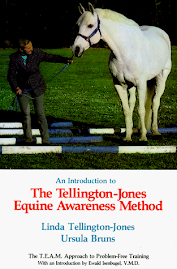
What's the best-researched herb in the world? From the standpoint of known active constituents, proven pharmacological mechanisms of action, proven clinical effectiveness through dozens of controlled clinical studies and decades of experience, and an excellent safety record, there is only one herb that can fit all of those criteria. It is milk thistle.
Milk thistle, Sylibum marianum, can be given to dogs, cats, horses and birds and is a wonderful healing herb for the liver. In animals (people too) it has been shown to protect the liver and regenerate liver cells. Its active ingredients are found in the fruiting bodies, the seeds and the entire plant. Birds will readily eat the tasty millet-size seeds, making milk thistle an excellent addition to the diet for any pet bird with liver problems.
There is a nutraceutical extract of milk thistle called silymarian, which is a flavonoid that has an affinity for the liver. It is used quite commonly in Japan and Europe for acute liver toxicosis. It's primarily used to regenerate hepatocytes, where it improves the flow of bile and fat to and from the liver.
Milk thistle, or silymarin, is one of the best herbs for liver cirrhosis, hepatitis, acute toxicosis of the liver and fatty liver disease. It is also beneficial for bile duct inflammation and is a potent anti-oxidant.
Clinical Applications
1. Regeneration
Milk thistle helps the liver regenerate healthy cells and repair old damage.
2. Skin Disease
According to Chinese medicine, inflammations of the skin are basically caused by a weak liver. Milk thistle is helpful in the treatment of skin diseases because of its positive impact on liver health.
3. Toxic Liver
While removal of the liver disease-causing substance is important in management of toxic liver situations, silymarin is the best documented drug for treatment of liver intoxication.
4. Mushroom Poisoning
Milk thistle has also been used as a preventive and/or antidote to poisoning by Amanita phalloides, the deadly deathcap mushroom. Animal research has found that milk thistle extract completely negates the toxic effects of the mushroom when given within 10 minutes of ingestion. If given within 24 hours of eating the deathcap, the herb significantly reduces the risk of liver damage and death.
5. Antioxidant
Milk thistle is many times more potent than vitamin E.
6. Cancer
Laboratory studies also suggest that active substances in milk thistle may have anti-cancer effects. Silymarin has strong antioxidant properties and has been shown to inhibit the growth of prostate, breast, and cervical cancer cells in test tubes.
7. Detoxification
Milk thistle has been shown to increase the glutathione (GSH) content of the liver by as much as 35 percent. Glutathione is one of the most important hepatic detoxification pathways of the body. More GSH, helps the liver more successfully process environmental toxins such as heavy metals and pesticides. It also improves protection against carbon tetrachloride, galactosamine, and praseodymium nitrate.






























































Spännade att läsa!
ReplyDeleteMarksman var galen i Tistlar förra året, men i år har det mest varit, Maskrosor, Klöver (om han kommit åt det ute på våra ridturer tex), och nu fröställningarna på gräset tycker han är goooda!!! Han är lite rolig på det!
Kul att det går bra med Orkan! Det är nyttigt att prova med en annan häst också, det har jag verkligen upptäckt med Nisse!